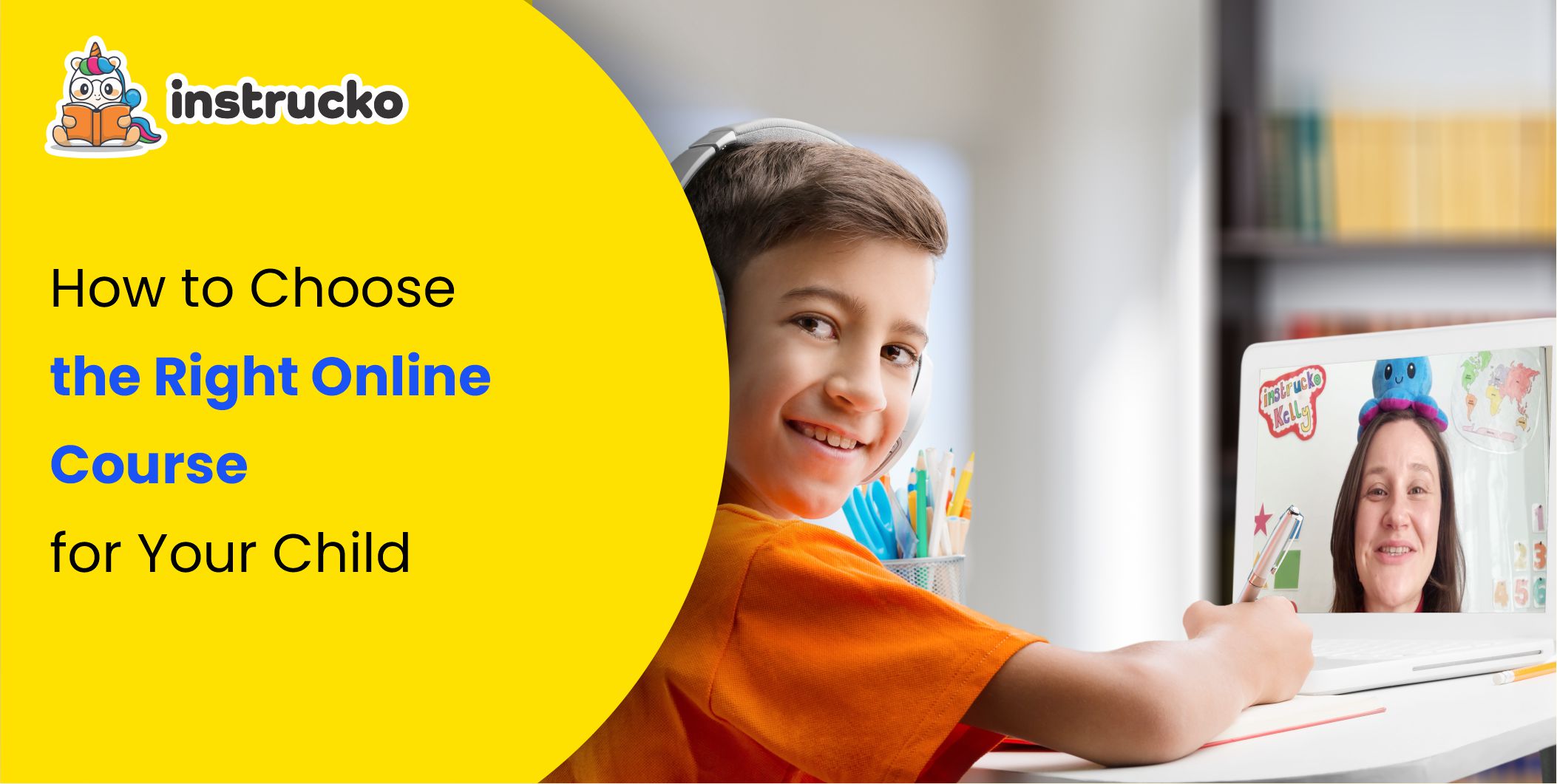How To Choose The Right Online School For Your Child
Choosing the right online school for your child can feel like an overwhelming task. With an array of options available, understanding what your child needs, how different programs operate, and what aligns with your values can make all the difference in their educational journey. In this article, you’ll discover various aspects to consider and practical advice to help you make an informed decision.

Understanding Your Child’s Learning Style
Before diving into the world of online schools, it’s essential to take a moment to reflect on your child’s unique learning style. Every child is different; some thrive in a structured environment, while others prefer a more flexible approach. You might notice that your child learns best through visual aids, hands-on activities, or verbal instructions. Recognizing these preferences can help you narrow down the options that will best suit their needs.
For instance, if your child is a visual learner, you might look for programs that offer abundant video content and interactive learning tools. On the other hand, if your child excels in a more hands-on learning environment, focusing on schools that provide project-based assignments could be beneficial. Taking the time to understand how your child learns can save you from potential frustration down the line and lead to a more fulfilling educational experience.
Researching Accreditation and Reputation
When selecting an online school, one of the first things you should investigate is its accreditation status. Accreditation is crucial because it signifies that a school meets specific educational standards and is recognized by educational authorities. Attending a non-accredited institution can impact your child’s education, potentially affecting college admissions and job opportunities later on.
Start your research by checking the school’s website for information about their accreditation. Typically, legitimate online schools will proudly display their accreditation status. Additionally, consider looking up reviews or testimonials from current and past students and parents. These insights will give you a sense not just of the school’s reputation, but of the community you and your child will be joining.

Assessing Curriculum Offerings
Online education varies significantly in terms of curriculum. Some schools follow a traditional curriculum aligned with state standards, while others might offer specialized programs focusing on a particular subject or skill set. Think about your child’s interests and strengths when assessing different curriculums.
If your child has a passion for science, a school that emphasizes STEM subjects and offers advanced courses might be the right fit. Alternatively, if your child has aspirations in the arts or humanities, look for schools that offer extensive options in those areas. It’s also important to consider how the curriculum is delivered. Is it synchronous, where students learn at specific times, or asynchronous, allowing for more flexibility in scheduling? Weighing these factors can help ensure that your child remains engaged and motivated in their studies.
Evaluating Technology and Resources
In an online school environment, technology plays a critical role. Ensure that the school you choose utilizes up-to-date technology and tools that foster an engaging learning experience. High-quality online schools typically offer user-friendly platforms, interactive lessons, and a robust set of resources, including libraries, tutoring, and academic support.
You should also consider the tech requirements for both you and your child. Does your child have access to a reliable internet connection? What devices will they need to effectively participate in their courses? Sometimes, schools provide necessary equipment, while others expect families to supply their own. Understanding these elements can save you costs and ensure that your child is well-prepared for online learning.
The Importance of Teacher Support
One of the significant differences between traditional schools and online schools is the level of interaction between teachers and students. Engaging with teachers effectively is crucial for your child’s success in an online learning environment. Investigate how the online school supports its instructors and what resources they have available.
You might want to explore the teacher-to-student ratio or how accessible teachers are through email, chat, or even video calls. Consider whether they provide one-on-one tutoring or mentorship opportunities, as this level of support can significantly affect your child’s learning experience. Furthermore, don’t hesitate to reach out to the school and ask these questions, as it will demonstrate your interest in your child’s education.
Exploring Extracurricular Activities
Online learning doesn’t have to mean a lack of extracurricular involvement. Many online schools offer clubs, sports teams, and opportunities for socialization through virtual events. These activities can be essential for your child’s social interaction, helping them develop friendships and build a sense of community, even in a virtual classroom.
Consider what types of extracurricular activities are available and how often they are scheduled. Are there options that align with your child’s interests? Finding a school that offers such opportunities can be vital, not just for your child’s education but for their holistic development as well.

Flexibility and Scheduling
Flexibility is often one of the main attractions of online schooling. However, the degree of flexibility varies from school to school. Some programs follow a rigid structure, while others offer a completely customizable schedule. Thinking about your family’s lifestyle and your child’s needs will help you navigate this aspect of online schooling.
If your child thrives on routine, a program with set deadlines and scheduled classes may be ideal. Alternatively, if your child struggles with the traditional academic calendar or has commitments outside of school, a more flexible approach might work better. Discuss your family’s needs and preferences to ensure you select a program that resonates with your child’s rhythm of learning.
Considering Costs and Financial Aid Options
Online education can vary in cost, and understanding the financial implications is vital for your family’s budget. Some online schools are free, while others charge tuition fees. Apart from tuition, consider additional costs that can arise, such as textbooks, technological requirements, and special materials for courses.
Before making a decision, ensure you understand the school’s financial aid policies as well. Many institutions offer discounts, scholarships, or payment plans, so don’t hesitate to inquire about these options. Knock out any financial apprehensions upfront helps ensure you can provide your child with the best education without straining your finances.

Reading Reviews and Testimonials
When shopping for an online school, you might find a plethora of reviews and testimonials from current and former students and their families. These narratives can vastly shape your perception of a school. While browsing through reviews, pay attention to not just star ratings but also the detailed feedback shared by families.
Look for consistent themes in the reviews—are multiple parents expressing concern over teacher responsiveness or academic rigor? Or are they praising the commitment to community and learning? Taking the time to read what others have experienced can provide invaluable insight and help you make a more informed decision.
Testing Out Programs
Some online schools offer trial periods or sample classes, which can be a fantastic way to gauge whether a specific program is the right fit for your child. During these trials, observe how engaged your child is with the material and the overall flow of the class.
A test run can reveal not just how the curriculum fits their learning style but also how well they interact with teachers and classmates. This experience can also teach your child about online learning dynamics, empowering them to make an informed decision with you about the educational path they choose to pursue.
Understanding Policies and Procedures
Every school has its set of policies, procedures, and guidelines that govern everything from attendance to grading. Before enrolling your child, it’s crucial to familiarize yourself with these policies.
Ensure that you understand how the school handles absences, what the expectations are for student participation, and how grading is conducted. Familiarizing yourself with these details allows you to align your family’s values and expectations with the school’s. More importantly, it could prevent surprises later on, ensuring your child has a smooth educational journey.
Establishing an Effective Learning Environment at Home
Once you’ve chosen the right online school, your responsibility shifts toward creating an effective learning environment at home. Ensure your child has a designated study area with minimal distractions, equipped with the necessary tools and resources.
Encouraging your child to separate schoolwork from leisure activities fosters a healthy balance. Additionally, establish a consistent routine that incorporates time for lessons, breaks, and social activities. This structure supports your child’s engagement with their online studies and promotes accountability. It will also instill a sense of relevance around their education, reinforcing that school is important and worthy of focus.
Maintaining Open Communication
As your child embarks on their online learning journey, maintaining open lines of communication is crucial. Regularly check in with your child about their coursework, their feelings about the classes, and any challenges they may be facing.
Ensure that you’re aware of their academic progress and any emotional responses to the coursework. Establishing this communicative relationship fosters trust and openness, allowing them to feel comfortable sharing frustrations or triumphs. In doing so, you can better support their academic achievements and nurture their emotional well-being.
Preparing for Future Opportunities
As your child progresses through their online schooling, begin conversing about future opportunities that lie ahead. Discuss potential paths regarding higher education, vocational training, or career options related to their interests. Encourage your child to think about how their education plays into their future goals.
Utilizing the resources that your online school provides, such as college counseling or career guidance, can also be instrumental as they approach graduation and reflect on their next steps. Having these discussions early allows them to take ownership of their educational trajectory, helping them align their studies with their aspirations.
Re-evaluating as Your Child Grows
As your child matures and progresses through their education, it’s essential to periodically re-evaluate if the online school is still the best option for their educational journey. Children’s needs and interests may evolve over time, and being attuned to these changes will ensure they continue receiving the education that best suits them.
Consider conducting an annual review to assess their satisfaction with the school, the curriculum’s effectiveness, and their overall engagement. Doing so allows you and your child to make necessary adjustments, whether that means transitioning to a new online school, supplementing their learning with additional resources, or even shifting back to a traditional classroom environment. This commitment to continuous evaluation reflects your dedication to their education and well-being.
Choosing the right online school for your child is no small task, but it’s undoubtedly an important one. By engaging in thorough research, understanding your child’s unique needs, and maintaining open communication, you can make a choice that will set them on a path to success. Remember, you’re not just selecting a school; you’re investing in their future.
If you found this article helpful, I encourage you to clap, leave a comment with your thoughts or insights, and subscribe to my Medium newsletter for regular updates. Your engagement keeps the conversation going, and I would love to hear about your experiences!
